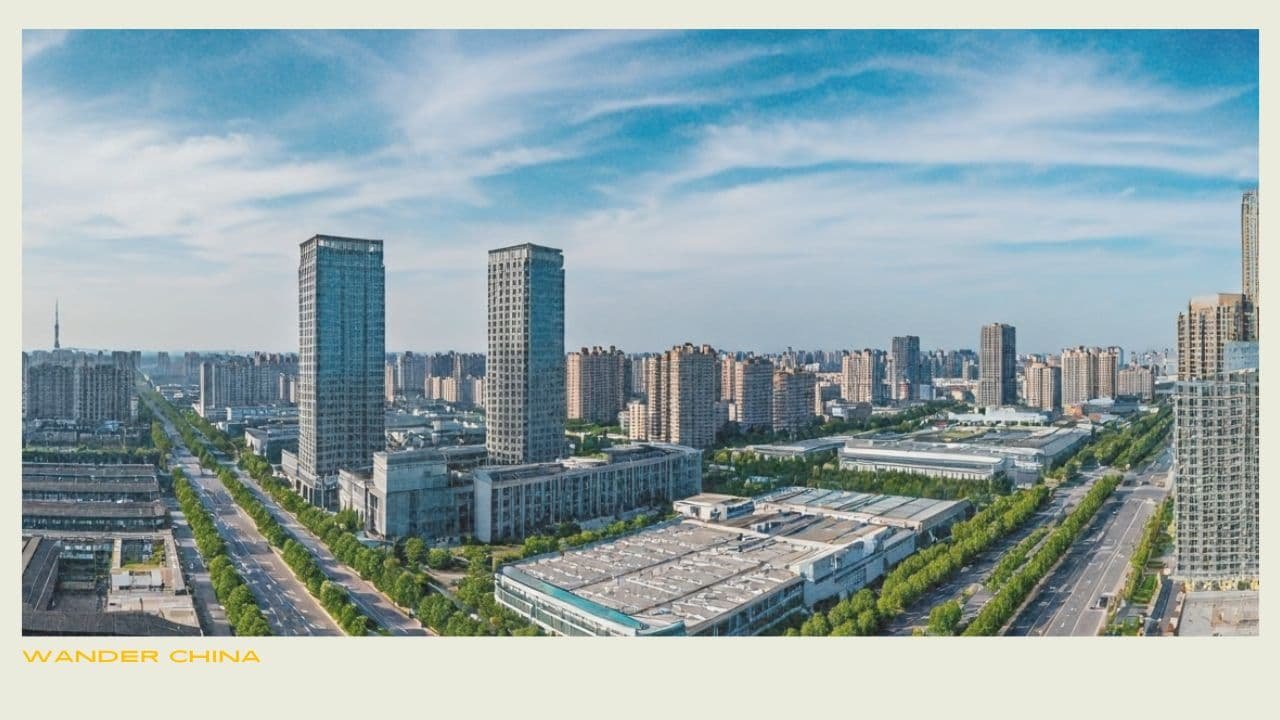The Truth About Working Conditions in China Today
Discover the truth about working conditions in China.

Key Highlights
- Long working hours: Many workers put in more than the usual 40-hour week. This especially happens during busy times, leading to a lot of overtime.
- Wage concerns: Problems like wage theft, low pay, and a lack of social insurance are still issues many face.
- Labor law enforcement: Local governments play a key role in making sure rules are followed. Still, there are challenges in doing this.
- Sector disparities: Working conditions can vary greatly in different fields like manufacturing, technology, and services.
- Worker safety: New rules are making safety better by focusing on hazardous substances and including health checks.
- Use of social media: Social media platforms allow workers to share their concerns and record their experiences.
Introduction
More people are finding out about working conditions in China. They are using social media and other online sources. Stories about overtime work, employment contracts, and the impact of data on worker rights are changing how people feel about this important issue. The link between what local government does and worker rights is tricky. This blog will look at these facts and connect them to the real problems workers face in workplaces in China.
Overview of Current Working Conditions in China
Chinese workers are experiencing quick changes in the economy. Competitive supply chains and global demand for products affect their daily work. Even with some new laws in place, there are still issues with enforcement on the basis of gender. This can lead to human rights violations concerning wages, overtime, and social insurance.
In electronics factories and service industries, workers have difficult conditions. They work many hours and don’t have much time for breaks. They also often get unfair pay. These tough challenges, along with China’s employment relationship policies, show the need for real change in the system.
Key Factors Influencing Labor Markets
The issues in the supply chain, along with changes in labor laws and job contracts, are affecting China’s labor market. Supply chains rely on what is needed globally. This makes workers in both manufacturing and service jobs work longer hours. This is especially noticeable in December, which is a busy month. Such conditions can raise production targets and make work feel harder.
Labor laws that protect workers must change quickly to keep up with rapid changes in industries. Local governments play an important role in enforcing these laws, but they face challenges. This is because different areas have different rules. Dispatch workers are particularly at risk of being mistreated because of these complex regulations.
Employment contracts should state wages, benefits, and working hours clearly. Sadly, these contracts can be misused or misrepresented. This can result in many workers losing their basic rights. Although China’s labor system has some strengths, it requires a better legal framework and teamwork to see real improvements.
Recent Changes in Employment Laws and Regulations
China has changed its labor laws. These updates aim to protect workers more and to improve how the rules are followed. Local governments will enforce these laws. But, they often face challenges in making sure everyone follows them.
One major change is to look more closely at employment contracts and remuneration. This is to make sure that workers get fair wages and proper social insurance contributions. In southern China, there is a focus on regulating dispatch workers. These workers may not get important rights such as sick leave and unemployment insurance benefits.
The updates are mainly about health checks and hazardous substances. The legal framework now puts more responsibility on employers to ensure safety in risky workplaces. However, there are still challenges in keeping workers safe everywhere. While these updates are a positive move, the way they are implemented can reduce how effective they are.
Sector-Specific Working Conditions
Working conditions in China can be very different depending on the industry. This happens because production needs and rules vary. In manufacturing jobs, workers often work long hours, particularly during busy seasons, and they need to be physically strong. On the other hand, the service and technology sectors face their own set of challenges, especially in the platform economy.
In Chinese factories, holiday orders or last-minute customer needs can alter worker schedules. Both industries highlight the importance of supporting fair treatment and equal workloads. This support will allow workers to do better in their jobs.
Manufacturing and Export Industries
Chinese factories in Guangdong are very important for supply chains around the world. But they also create tough challenges for the workers. Many employees often work a lot of hours, especially during busy times like Black Friday and Christmas. It is normal for workers to work more than 250 hours each month. This is more than the usual overtime limits.
Working in factories is hard. Workers have to stand for long periods and take only short breaks during work hours. Many people in dispatch jobs do not get important employee benefits, like social insurance. This can make their jobs feel unsafe.
Hiring student interns for jobs separate from their studies seems unfair. Factories usually have different amounts of oversight. This can cause problems such as wage theft and job discrimination. Due to these issues, Chinese firms need to change how they hire. They should focus on being clearer in their processes.
Technology and Service Sectors
The fast growth of the sector has changed how people work in China’s technology and service industries, highlighting the development of the sector. The scale of the platform economy is still increasing, particularly in the food delivery industry. This growth creates new jobs. But it also brings some new challenges.
Technology hubs want to be adaptable. They offer benefits to skilled workers. Yet, it can be hard for entry-level jobs to advance. Gig workers who use service platforms often have flexible employment contracts. However, these contracts may not have essential protections.
These industries can help businesses get bigger. But they need better rules. These rules can keep workers safe and make sure they get paid fairly. Both points are important for the platform economy. A strong platform economy brings benefits for everyone.
Health and Safety Standards in the Workplace
Taking care of workers in China is important for work safety. This means keeping them safe from harmful materials. It also includes giving them regular health checks. Local governments set rules for different industries. These rules help reduce risks related to work hazards.
Employers should practice good safety habits. They need to give warning signs and safety gear to all workers. Even though some progress has been made, it can be tough to follow these rules all the time. It is important for workers to share their concerns and ask for help to keep improving safety.
Government Regulations on Worker Safety
Work safety laws in China are becoming tougher. Employers now have to take more responsibility. These laws state that health checks are essential. They also call for protective measures for working with hazardous substances. This helps ensure that workplaces meet national standards.
The government is increasing its monitoring by performing specific checks at work sites. They want to find any risks in the workplace and fix problems. Employers who do not follow these rules may get fined or could even have their businesses closed down.
Having these laws is important. It is also crucial for local government to enforce them well. To get the best results, we need to work together. This means cooperating with government regulators, workplaces, and advocacy groups.
Case Studies of Safety Practices in Factories
| Factory | Safety Practice Observed | Challenges |
|---|---|---|
| Foxconn (Taiyuan) | Onsite health checks | Long hours affect health |
| Jabil Circuit (Guangzhou) | Updated labels for hazardous substances | Limited enforcement by workers |
| BOE (Hefei) | Provided safety equipment | No routine inspections |
Electronics factories are working hard to follow safety rules. Workers want more rights and better information. But, China Labor Watch has found some problems with how these rules are followed. They think there should be stronger penalties for those who break safety laws. These problems show that we need big changes in workplace safety.
The Role of Unions and Worker Rights
Labor unions are important for uniting people and fighting for workers’ rights. In China, trade unions have built trust between workers and bosses. However, making sure work is fair still has its challenges.
Unions play a big role in several important areas. They discuss pay and assist with challenges that migrant workers face. Unions do many things to make conditions better. The laws that support unions are good, but they need updates. Changing the laws will help meet the needs of workers today.
History of Labor Unions in China
Trade union development in China has changed a lot over time. At first, unions wanted to help workers come together for fair talks and better labour relations. As workers became more united, unions started to focus more on supporting migrant workers.
Unions have played a big role in promoting fairness in different ways. They have worked hard for more democracy in the workplace. They have also fought for social insurance contributions. But sometimes, their freedom has faced limits. This often occurs when political actions try to control their power and influence.
China’s unions play a key role in connecting workers and employers. They are important, especially when facing challenges.
Current Challenges and Achievements
Many organizations are dealing with issues related to the role of the trade union as representatives, striving to maintain solidarity among the workforce. In southern China, migrant workers usually work under tough conditions. Sadly, their basic rights are often ignored.
Efforts to make the legal system better have led to some important successes. Unions are working hard to ensure good pay, fair treatment, and better ways to handle complaints. These successes show how valuable strong ties in the system are for creating change.
Unions are dealing with challenges in politics and industry. Still, their strong spirit indicates that there is a chance for more progress in China’s labor rights.
Conclusion
In conclusion, knowing the truth about working conditions in China today is very important. This helps us understand the global labor market better. There has been some progress with rules and safety, but many problems still exist, especially concerning worker rights and some industries. If we look at the main factors that affect labor markets and the role of unions, we can see how workers deal with these changes. As we learn more about what really goes on beyond the news stories, it is important for both consumers and businesses to stay updated and support fair labor practices. In this context, we can address some of the most frequently asked questions regarding labor rights and practices. You can share your thoughts or questions in the comments below. Discussing these issues raises awareness and can really make a difference.
Frequently Asked Questions
What are the typical working hours in China?
In China, employees typically work 8 hours a day and 40 hours a week. Many workers often put in extra hours during the peak season and busy times. Employers must give rest days and pay workers more for overtime work. This is part of the labor laws that protect employee benefits.
How does China enforce labor laws?
Local governments are important for ensuring that labor laws are followed in special cases. The legal framework helps manage jobs. It aims to make sure the rules are followed by doing inspections and applying fines. Still, there are some challenges in this area. These challenges show the problems in China’s diverse labor market.
Recent Posts
- Top Guangzhou Watch Markets to Visit in 2025: The Ultimate Insider’s Guide
- My Guide to the Best Home Appliance Markets in Guangzhou
- Guangzhou Garment Wholesale Markets: My Local Guide
- Best Hotel in Guangzhou: A Comprehensive Guide for Foreign Travelers
- Guangzhou Food Guide: Must-Try Dishes & Top Restaurants (2025 Edition)
Recent Comments
Top Guangzhou Watch Markets to Visit in 2025: The Ultimate Insider’s Guide
I visited the top watch markets in Guangzhou to show you where...
My Guide to the Best Home Appliance Markets in Guangzhou
Explore top offline home appliance markets in Guangzhou with local tips, Chinese...
Best Hotel in Guangzhou: A Comprehensive Guide for Foreign Travelers
Find the best hotels in Guangzhou—from luxury icons to local favorites. Updated...
Guangzhou Food Guide: Must-Try Dishes & Top Restaurants (2025 Edition)
I’m an expat in Guangzhou sharing the best local dishes, top restaurants...







Leave a comment